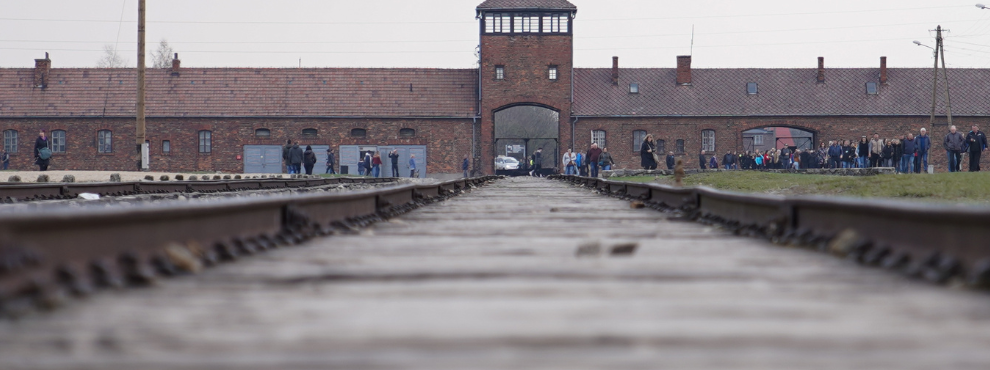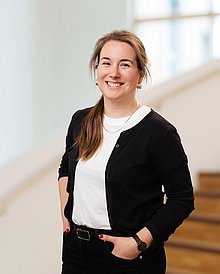Why the Nazi era should still be considered in medical training today
A model curriculum at Witten/Herdecke University focuses on historically-informed professional identity formation.

Learning from the past for the future - in line with this guiding principle, medical students at Witten/Herdecke University (UW/H) are critically analysing the crimes of National Socialism and the implications for their own professional ethics in a model curriculum. "27 January 2024 marks the 79th anniversary of the liberation of the Auschwitz-Birkenau concentration camp; remembering the victims of the Holocaust is more important today than ever," says doctor Diethard Tauschel from the UW/H. Since 2009, he and the team of the Integrated Accompanying Studies in Anthroposophic Medicine have been working on the topic of raising medical awareness and ethics using the example of medicine under National Socialism - in cooperation with Prof. Dr Peter Selg, Ita Wegman Institute (Arlesheim, Switzerland), Prof. Dr Claudia Kiessling, holder of the Chair for the Training of Personal and Interpersonal Skills in Healthcare, and the "WittenLab. Zukunftslabor Studium fundamentale" of the University of Witten/Herdecke.
In 2019, they set up a three-year model curriculum on this topic. Diethard Tauschel: "As lecturers and trainers, we ask ourselves the question: How can we promote the professional identity development of medical students and sharpen their moral and ethical understanding of the profession so that they can act in a reflective and - if necessary - resilient manner?"
Illuminating the role of doctors during the National Socialist era
This is where the teaching concept comes in: The focus is on pre- and post-prepared excursions to the sites of events under National Socialism. In seminars, individual work, reflection groups and at the memorial sites of former concentration camps and killing centres, students will examine the history of medicine and the role of doctors before and during National Socialism. Healthcare professionals in particular made industrialised mass murder possible during the Nazi era. Dealing with these crimes after the Second World War made a decisive contribution to the development of professional ethics in the healthcare sector. Reflecting on history and learning from it is not only important for practising doctors, but also for students.
For example, a visit to the Auschwitz concentration camp focuses in particular on the terrible deeds of SS doctors, but also on the biographies of doctors who offered resistance. "They developed a resilience that touched the participants deeply," says Diethard Tauschel, looking back on the last excursion. As a result, the students began to think about themselves and their profession. How can we live humanistic values and develop resilience against dehumanisation? "Our vision is to make a difference in medical education through experiences like this: to be historically informed, to understand the emotional and moral influence and to derive insights for one's own studies and later work." Numerous current debates could benefit from an understanding of this history.
"In order to adequately meet the current challenges in the healthcare system, we need more than just the scientific basics. It requires a reflective ability that, in addition to introspection, also approaches the major moral and political issues of our time," says Johanna Iserlohe, a student of human medicine and student assistant.
Understanding history to shape a better future
So far, participation in the model curriculum has been voluntary. "The next step is to include it as a compulsory course in teaching and also make it accessible to staff in the cooperating clinics," says Prof Dr Melchior Seyfarth, member of the Council of the Faculty of Health at UW/H. "After all, reflecting and analysing one's own profession and the system in which one works should never stop."
The history-based medical teaching concept was recently included in the compendium of the commission"Medicine, National Socialism and the Holocaust: Historical Evidence, Implications for the Present, Education for the Future" of the renowned medical journal "The Lancet". "We are convinced that the study of medicine, National Socialism and the Holocaust can help students to stand up against anti-Semitism, racism and other forms of discrimination; in their professional role, but also as global citizens," says Dr Hedy Wald, member of the Lancet Commission. "Only by understanding and reflecting on history can we shape a better future - a better healthcare system and a more understanding society as a whole."
Further information:
A publication about the students' experiences during an excursion to the memorial sites in Auschwitz and Auschwitz-Birkenau can be found here in German and English: GMS | GMS Journal for Medical Education | "Where my responsibility lies": Reflecting on medicine during the Holocaust to support personal and professional identity formation in health professions education (egms.de)
The contact person for work on the model curriculum is Diethard Tauschel | +492302 / 926-725 | Diethard.Tauschel@uni-wh.de
Photos for download
Contact person

Miriam Kreimeyer
Communications Officer
Administration | Communication & Marketing
Alfred-Herrhausen-Straße 48
58455 Witten
Room number: 2.F05

